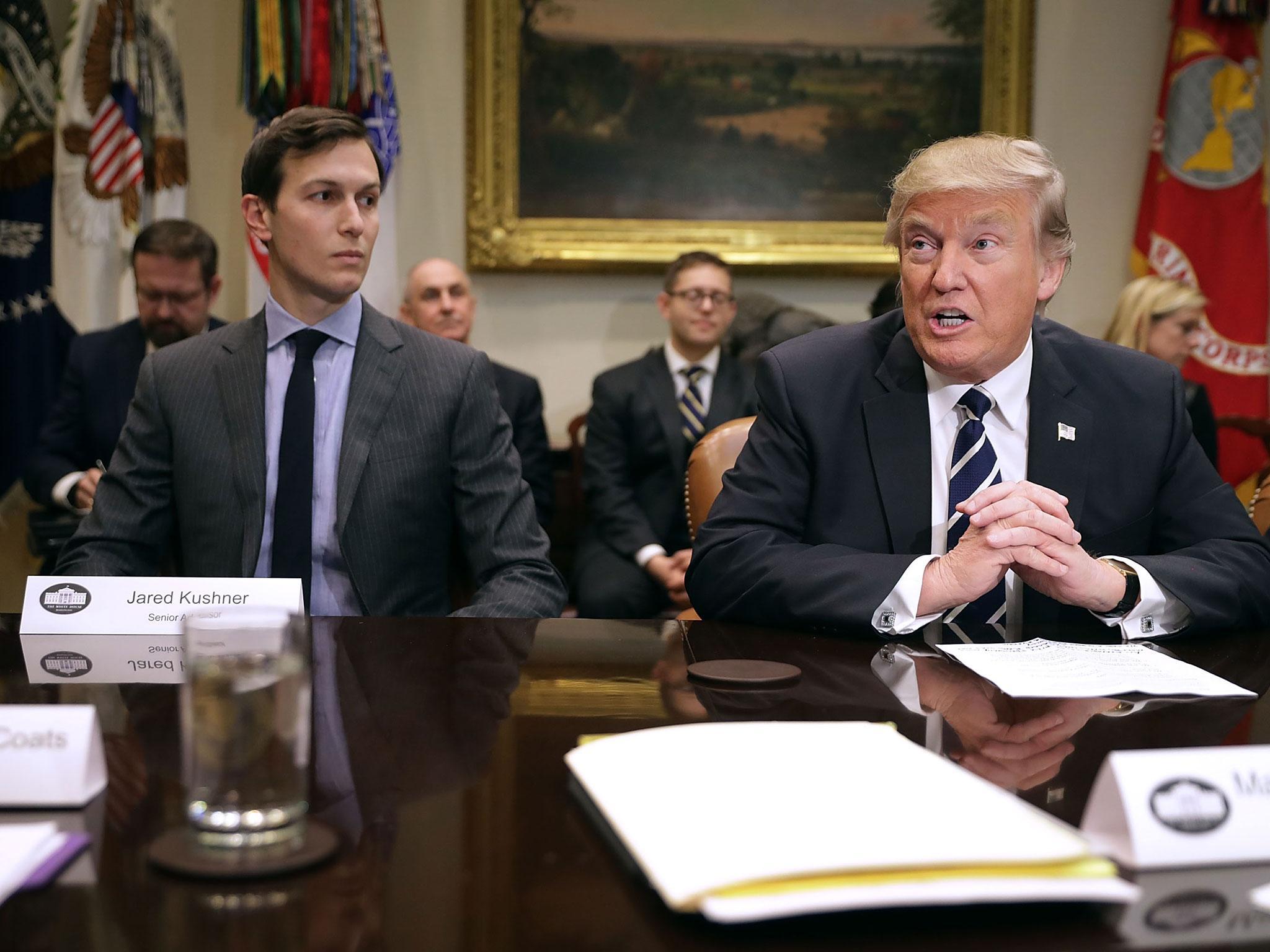Jared Kushner was right to seek private channels with Russia
Trump critics are treating the latest revelation as further evidence of Russian collusion, but given the constant stream of leaks coming from the intelligence agencies, it may have been the best option to improve relations with the Kremlin


Your support helps us to tell the story
From reproductive rights to climate change to Big Tech, The Independent is on the ground when the story is developing. Whether it's investigating the financials of Elon Musk's pro-Trump PAC or producing our latest documentary, 'The A Word', which shines a light on the American women fighting for reproductive rights, we know how important it is to parse out the facts from the messaging.
At such a critical moment in US history, we need reporters on the ground. Your donation allows us to keep sending journalists to speak to both sides of the story.
The Independent is trusted by Americans across the entire political spectrum. And unlike many other quality news outlets, we choose not to lock Americans out of our reporting and analysis with paywalls. We believe quality journalism should be available to everyone, paid for by those who can afford it.
Your support makes all the difference.Just as the Russia fracas in Washington seems to be dying down, Donald Trump’s critics have found a new Russia-related stick to beat him with. His son-in-law, Jared Kushner, is accused of meeting Moscow’s man in DC (yes, that would be Ambassador Sergey Kislyak again), to explore setting up a confidential communications channel between the Trump team and the Kremlin.
Why, Trump’s enemies ask, would any loyal citizen possibly want a channel closed to the prying eyes and ears of US officials and its agencies, unless for some treasonous purpose?
Given the latest leaks to the US media of sensitive shared UK intelligence, part of the answer to that question should be obvious. Most of the leaking against Trump from the presidential transition to this day has come from one branch or other of the US agencies (the FBI or the various intelligence-gathering branches).
How did anyone other than the participants know there had been a Trump Tower meeting between Kushner and Kislyak and this is what was discussed? Because Kislyak was being taped. Taping an American requires special clearance, but, of course, you can’t tape just one half of a conversation.
Such legal and practical considerations aside – which pose real questions which largely remain unaddressed – I find it hard to understand what is actually wrong with Kushner and Kislyak sounding out the possibility of what is customarily called a “backchannel”. This is a time-honoured way of trying to end a persistent, maybe dangerous, stalemate.
Last year, many seasoned diplomats and military men were concerned that the lack of formal contacts between Russia and the West (after Crimea) was creating a situation perhaps more dangerous than the perpetual stand-off during the Cold War.
The convention during a US transition is that the outgoing president does nothing that creates new diplomatic liabilities for his successor. Before inauguration, the President-elect rightly has no power, so there can be a risky stasis if international events are moving fast. But it is irresponsible to argue – as Trump’s opponents have – that there should be no communications whatsoever between the incoming team and representatives of other countries. Or, as they have also argued, that a private citizen who meets a foreign ambassador is negotiating with a foreign power and committing a crime.
Creating a backchannel is a highly sensitive and difficult business – one leak, and its whole utility is gone. Those who use it must command the complete trust of their sponsors and, if possible, be sufficiently removed from government to make official involvement deniable. If those conditions are met, it can be a highly effective – indeed the only – way of breaking an impasse, when the positions of either side are entrenched and any concession entails loss of face.
The purpose is to find out where the other side actually stands – as opposed to where it publicly says it stands – and where the real “red lines” are. Look at almost any seemingly intractable dispute, from the Cuban missile crisis, through the start of the Helsinki process that initiated East-West détente (and arguably led to the end of the division of Europe), to the Oslo talks that almost brought peace in the Middle East, the start of the successful Northern Ireland talks that led to the Good Friday Agreement and most recently the truce between the Revolutionary Armed Forces of Colombia (FARC) and the Government. Not only will you find one or more backchannels, but the case for creating them should be made.
In the end, for whatever reason, it appears that a Trump-Kremlin backchannel was not created. It might have been better for US-Russia relations if it had.
Join our commenting forum
Join thought-provoking conversations, follow other Independent readers and see their replies
Comments